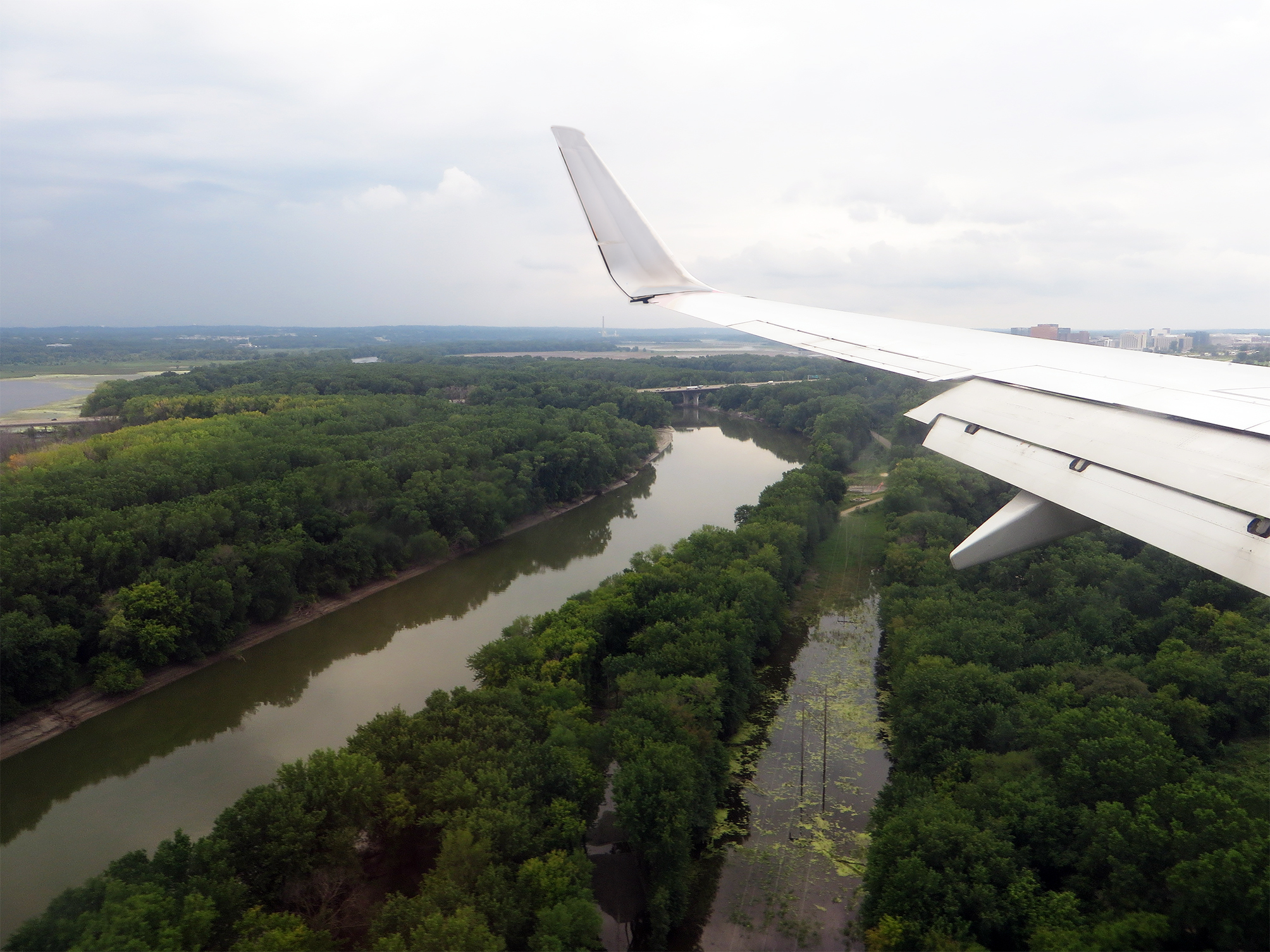Why FMR is working on sustainable aviation fuel

There is immense promise in a new era of aviation fuel. There is also real peril. We’re at the table to steer decision-makers toward the most sustainable options. (Photo by Ken Lund)
A pivot away from the typical petroleum-based aviation fuel is inevitable.
Some aviation industry leaders are actively pursuing lower-carbon fuel options that will allow them to reduce air travel emissions, even while planning for more travelers. Policymakers are exploring new rules to ease and hasten this transition. And agricultural businesses are looking for opportunities to squeeze on board and find a good seat before takeoff.
There is immense promise in this transition. If done right, sustainable aviation fuels in Minnesota could be a true boon for our waters, environment and farmers. But if the wrong choices are made, a “sustainable” aviation fuel could be anything but, and ultimately make things worse.
That’s why Friends of the Mississippi River is getting involved.
Our goal is to shape policy and corporate investments around sustainable aviation fuel now, as they are formed, in order to ensure that what emerges is truly better for the Mississippi River and better for Minnesota.
How we’re making that happen
To make the case for policies that will result in true sustainability — rather than half-measures or, worse, greenwashing — we need to be at the table with key decision-makers. We are engaging with stakeholders, including those who are part of the Minnesota SAF Hub, in order to provide legitimate solutions and influence the types of fuels airlines ultimately pursue.
One major opportunity is directly linked to our longstanding advocacy of Forever Green and continuous living cover: winter annual oilseeds such as camelina and pennycress. Winter oilseeds can be used to make very low-carbon aviation fuels (much lower than other, more common biofuels such as ethanol) while also benefiting water quality, soil health and wildlife, including pollinators. We’ll be urging airlines and their partners to adopt a sustainable aviation fuels strategy that prioritizes these clean-water crops.
We are also being clear about our principles up front.
FMR, Fresh Energy and The Nature Conservancy teamed up to develop and release a set of guiding principles for sustainable aviation fuels in Minnesota. These principles represent core commitments to sustainability and equity that decision-makers must incorporate into the development of sustainable aviation fuels in Minnesota. Read more about these guiding principles here.
Fly better, fly less
Ultimately, achieving net zero will come down to pursuing two complementary approaches: Fly better and fly less.
- "Fly better" means reducing aviation industry emissions through lower-carbon fuel pathways
- "Fly less" means enhanced investments in alternatives (such as national high-speed intercity rail networks and state-level rail strategies) that connect our communities and reduce the overall demand for air travel.
FMR supports investments in the "fly less" strategy. Right now, we’re focused on the "fly better" aspect because of the impacts that low-carbon aviation fuel strategies can have on the Mississippi River.
The importance of the moment
We are at an inflection point.
A shift away from petroleum-based aviation fuel is already underway. But choices made in the coming months will determine whether that fuel fulfills its transformative environmental and climate promise — or locks us into decades of perilous, destructive practices.
For the river, the natural world and Minnesota’s communities, we are committed to doing everything we can to make sure sustainable aviation fuel is done right.